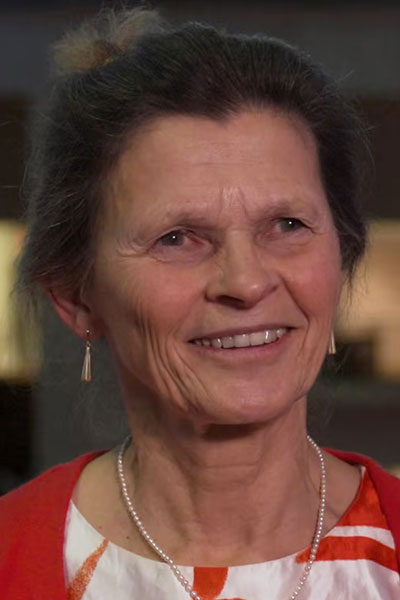MANAGEMENT OF HEREDITARY RISK: MODERATE-RISK GENES AND NEW APPROACHES
Thursday, December 8 • 3:00 pm – 5:00 pm CT • Hemisfair Ballroom 1&2

Presentation: Screening for high-risk patients: Does everyone need annual MRI with mammogram?
Madeleine M.A. Tilanus-Linthorst, MD, PhD
Department of Surgery
Erasmus University MC
Rotterdam, Netherlands
What is your presentation about?
Several studies show that the advised yearly screening of women with high breast cancer risk with MRI and mammography (Mg) reduces mortality. The optimal frequency of screening, however, depends on the expected tumor growth rate, which decreases with a woman’s age and is lower in women with familial risk than BRCA1/2 PV-carriers.
Observational and modelling studies show varying additional value of Mg to MRI-screening for different risk and age groups. Taking this all into account and balancing it with the expected false-positive rate and cost can result in more differentiated screening advice.
What makes this topic important in 2022?
In the last few years, two randomized studies on MRI-screening and the large observational high-risk screening Ontario study have been published, which give reason in several countries to reconsider the guidelines. Convincing evidence of schemes with optimal benefit and as low as possible false-positive rates and cost may enhance reimbursement. That can improve accessibility, which is much needed in 2022 worldwide.
How/why did you become involved with this area of breast cancer research or care?
The detection of the BRCA1 and 2 genes in 1994 and 1995 raised many questions, including from high-risk women in the outpatient clinic of Erasmus University MC where I work. This urged basic investigations, like on tumor growth rates as well as more practical ones, such as the randomized trial to find the optimal screening scheme for women with familial risk.

Presentation: Hormonal exposure and risk in BRCA1/2 carriers
Joanne Kotsopoulos, MSc, PhD
Canada Research Chair
Scientist, Women’s College Research Institute, Women’s College Hospital
Associate Professor, Dalla Lana School of Public Health, University of Toronto
What is your presentation about?
Women who inherit a mutation (or pathogenic variant) in the BRCA1or BRCA2 gene face the highest known lifetime risks of developing breast and ovarian cancer. Thus, it is important to understand how exogenous exposures, especially hormones, may impact upon cancer risk and outcomes in this population. I was asked to present an overview of the current knowledge regarding this topic. Understanding the impact of exogenous hormone use is important for both the clinical management of high-risk women and for furthering our knowledge of the pathogenesis of BRCA-associated disease. Specifically, I will discuss what we know about the role of tamoxifen in preventing BRCA-associated breast cancer and will also describe whether use of oral contraceptives or hormone replacement therapy (HRT) increase the risk of disease. These are extremely important clinical questions given that the incidence of disease starts much earlier in this population compared to women without a mutation.
What makes this topic important in 2022?
These genes were discovered in 1994 and 1995 respectively. We and others have made critical advances in the best way to manage this high-risk population, but unfortunately, surgical prevention, which consists of preventive removal of the unaffected breasts as well as the ovaries and fallopian tubes, is the only effective way to prevent disease and improve long-term outcomes. It is timely to reevaluate the knowledge gained over the past two decades, both from mechanistic and epidemiologic studies, to think about non-surgical prevention. In this session, I will review how the data from clinical studies supports findings from basic biology, and collectively have furthered our understanding of the underlying aberrancies implicated in the development of disease in women with a mutation. Importantly, these findings have uncovered novel targets for the non-surgical prevention of BRCA1-associated breast cancer and the potential to repurpose an existing drug to prevent disease in high-risk women. This is a major advancement, and pending findings from clinical trials, will be critical for women who opt for screening vs. preventive mastectomy.
How/why did you become involved with this area of breast cancer research or care?
I have been engaged in hereditary breast and ovarian cancer research since 2003, initially as a PhD student at the University of Toronto, when I was first introduced to the area of clinical cancer genetics. As a graduate student, I focused on the role of modifiable exposures on BRCA-associated cancer risk and outcomes. After completing a postdoctoral fellowship at the Brigham and Women’s Hospital/Harvard Medical School, I returned to the Hereditary Cancer Unit at the Women’s College Research Institute (Women’s College Hospital) where I have been a scientist since 2009. I am part of a committed team of scientists, clinicians, trainees, and research staff, as well as a large network of international collaborators, dedicated to providing high-risk women and their health care providers with evidence-based management options to impact cancer burden and quality of life. For over 15 years, I have been studying the underlying pathogenesis of BRCA-breast and ovarian cancer, with an ultimate career goal of improving upon existing prevention options for these women.

